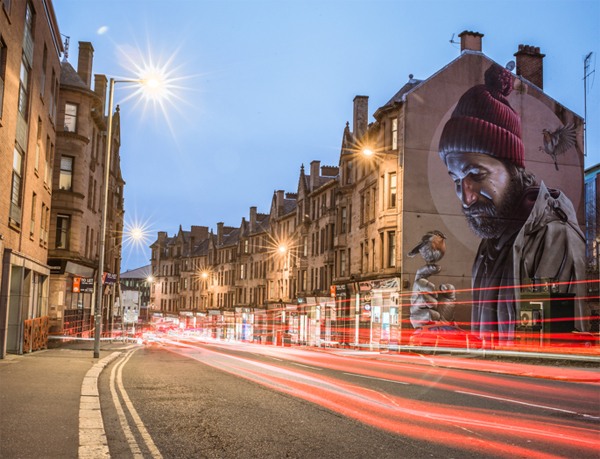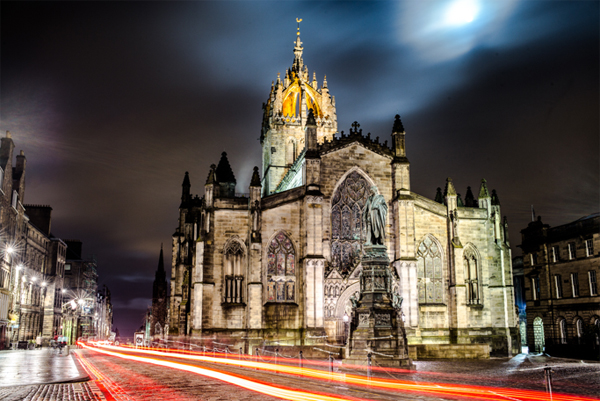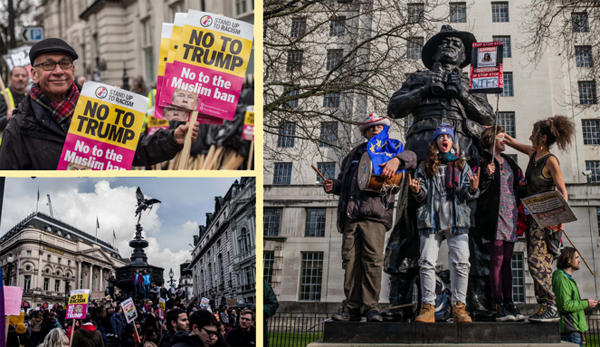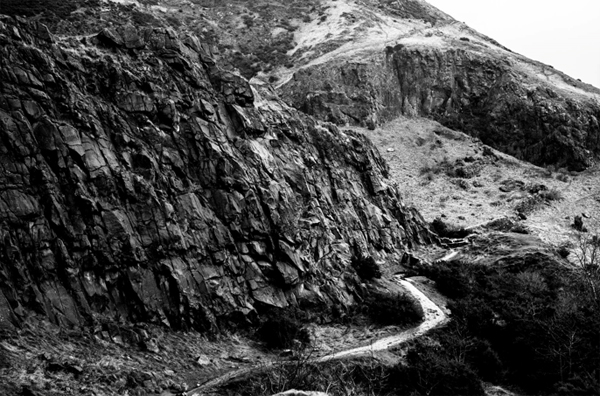On Asylum and Migration, visiting the Glasgow Refugee and Asylum Network
By Aaron Anfinson

The streets of Glasgow, 60 second exposure
Throughout 2016 much of the world seemed to be reading off of an anti-globalisation and anti-immigration script. As a result, we have been experiencing the uncertainty of Brexit and the ‘American Carnage’ of a Donald Trump presidency. Additionally, an ultra-nationalist party is on the rise in nearly every country in the European Union, potentially threatening this post-war project of unity with disintegration. Overall, we have been witnessing an intensification of national chauvinism that has been accompanied by an alarming spike in hate crime, conjuring up depictions of fascism and xenophobia. Nobody has felt the brunt of this more than the refugee, especially asylum seekers directly dealing with both a rise in anti-Islamic sentiment and the trauma of the geopolitical decisions that have shaped our world since the 2003 invasion of Iraq.
For six weeks, I was fortunate enough to hear from people directly researching many of these issues. At the University of Glasgow, I visited the Glasgow Refugee and Asylum Network (GRAMNet), which links together researchers with non-governmental organisations (NGOs), policy makers and various practitioners dealing with migration issues and asylum seekers. From departmental talks and drop-in sessions, this exchange led me to Scotland’s first Migrant Voice conference. Then, I followed these issues into the streets of London, where tens of thousands marched in protest of the misinformation, ‘alternative facts’ and prejudice that have not only shaped Trump’s failed immigration ban but have also encompassed the Eurosceptic fervour that, from Brexit to the rise of Marine Le Pen, is increasingly labeled as neofascist.

The streets of Edinburgh, 60 second exposure
First, this exchange led me to a conference on ‘Migrants and Migration Post Brexit’. With plenaries from a minister of Scotland and migrant community organisers, this conference offered workshops with academics and journalists, bridging a disconnect between the media and practitioners working directly on issues of asylum. The event focused on curtailing hate crime and exploring new challenges facing migrants as the UK grapples with the implications of Brexit, to which—I was frequently reminded—Scotland was overwhelmingly opposed. It concluded with readings by Jackie Kay, the poet laureate of Scotland, and a customary cèilidh, a traditional social gathering involving a live band, great food and dance.

Then, I followed these issues into the streets of London where over 40,000 people marched against Donald Trump’s infamous immigration ban, his planned visit to the UK and a burgeoning ‘special relationship’ with Theresa May. Like past marches, it concluded in Trafalgar Square. This time, however, the march began at the US Embassy.

Nearing the end of my exchange, I also followed the issues to Edinburgh, where demonstrations were much more specific to Scotland. Trump remained at the centre, but his ties with Theresa May seemed to have the whole of Scotland distancing themselves even further away from the United Kingdom. “We might not find a UK solution”, I was told, “but we sure as hell will find a Scottish solution”.

Outside Edinburgh
Overall, this immersion reminded me of something that many scholars in the Arts and Humanities have known all along: that the issues we work with often extend beyond any single discipline—they flow from and overflow into the streets. As the sheer power of oligarchy increasingly props up ‘post-truths’, ‘alternative facts’ and xenophobia, I am reminded that the academic needn’t sit on the sidelines. Perhaps now more than ever, research should critique and embrace the political.

Our apologies, you must be logged in to post a comment.